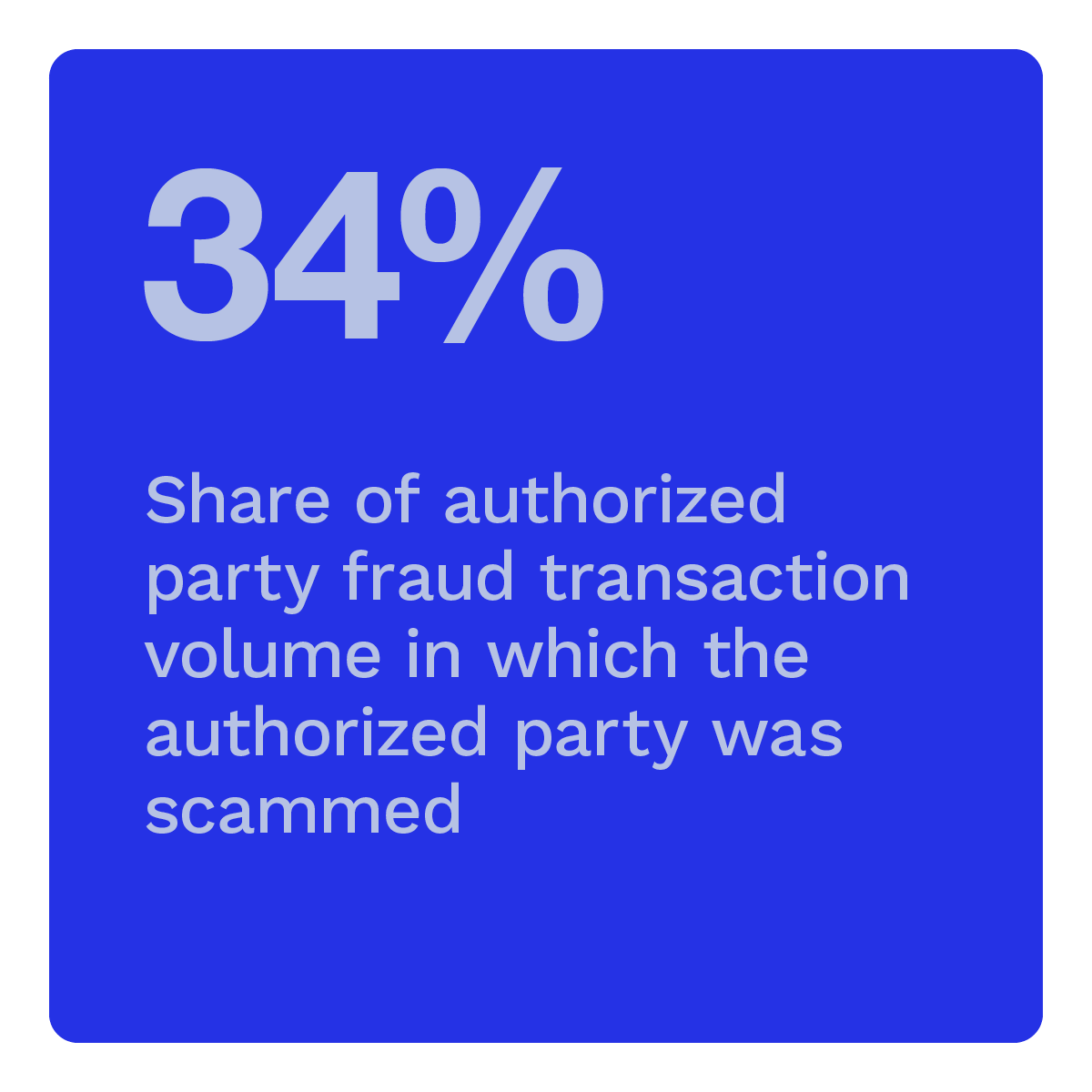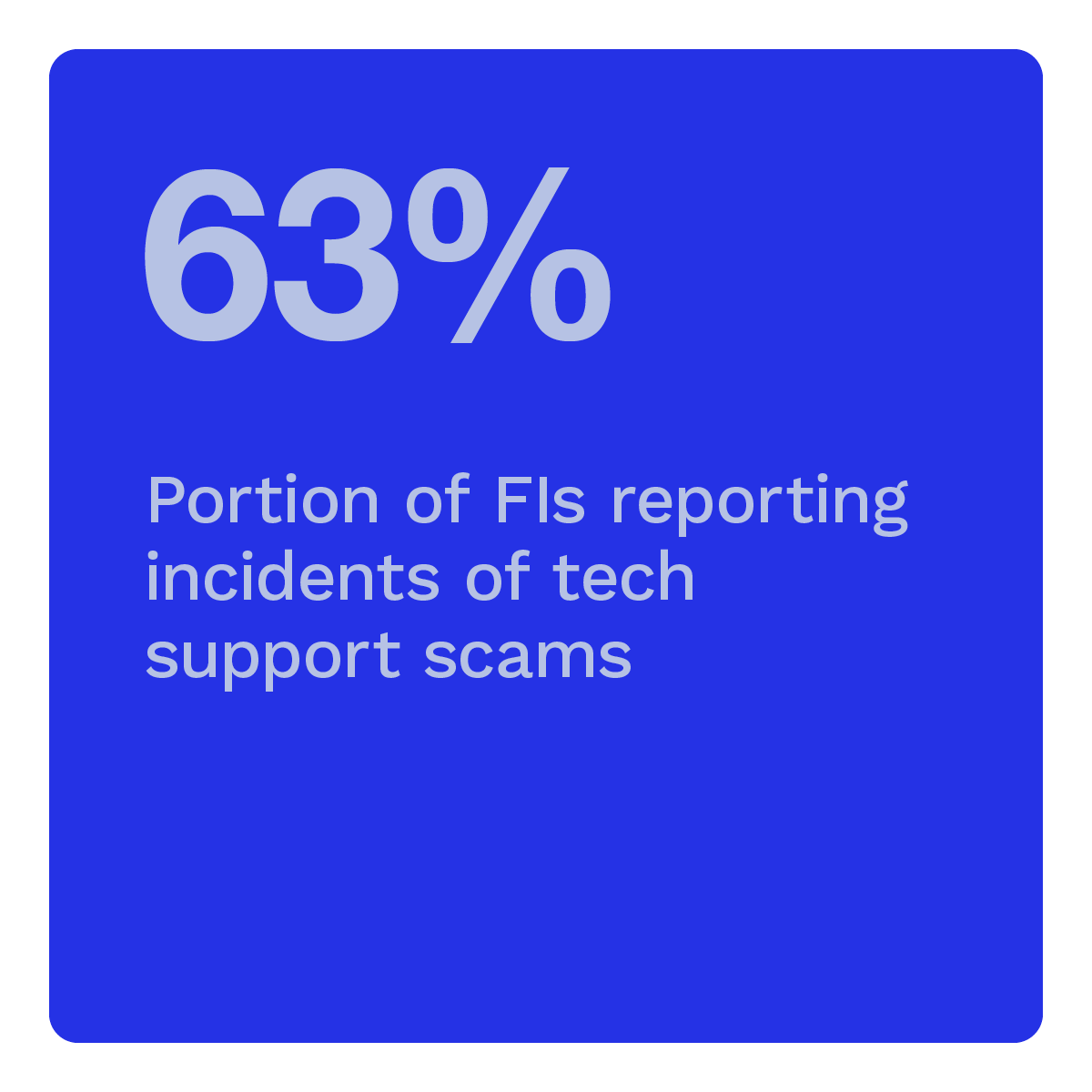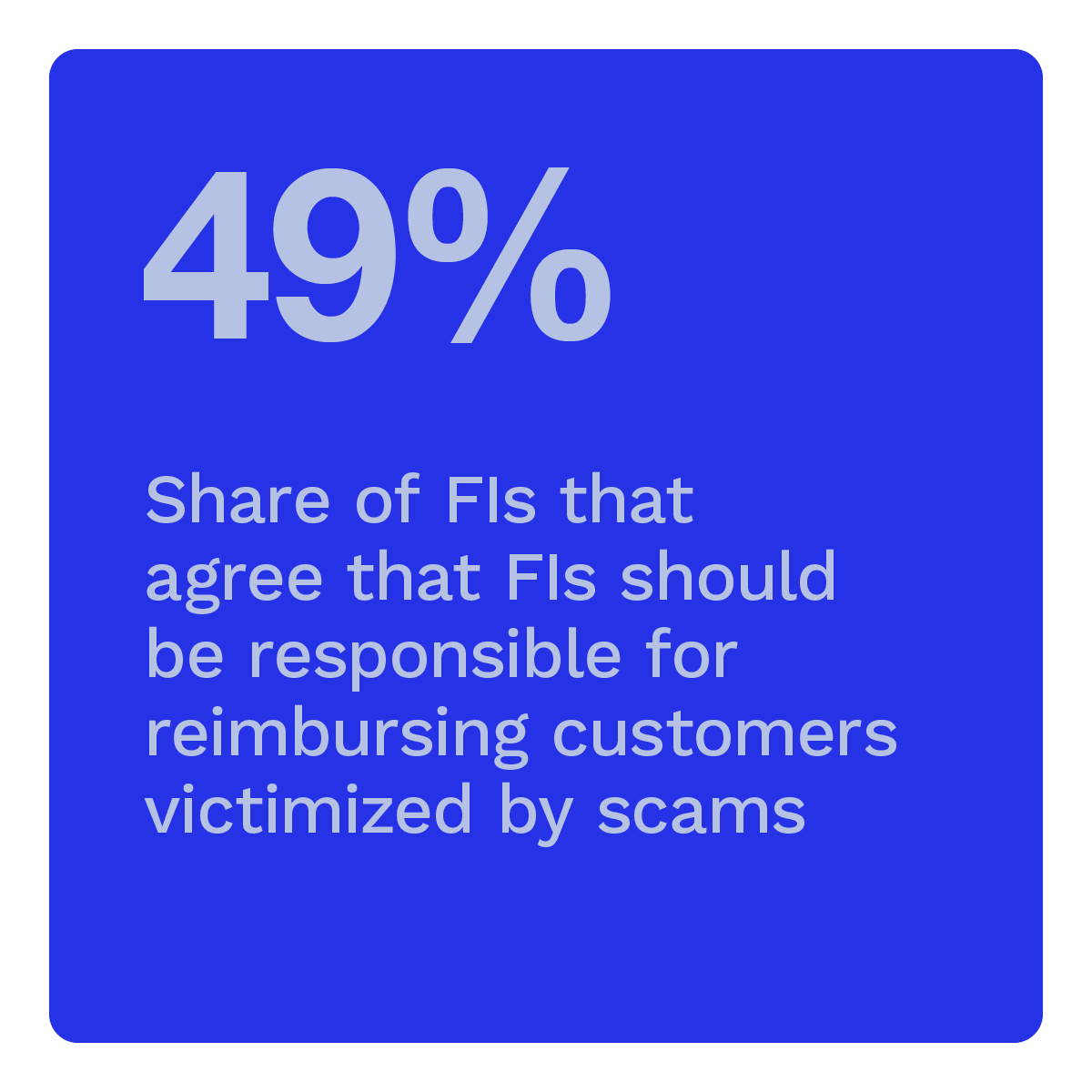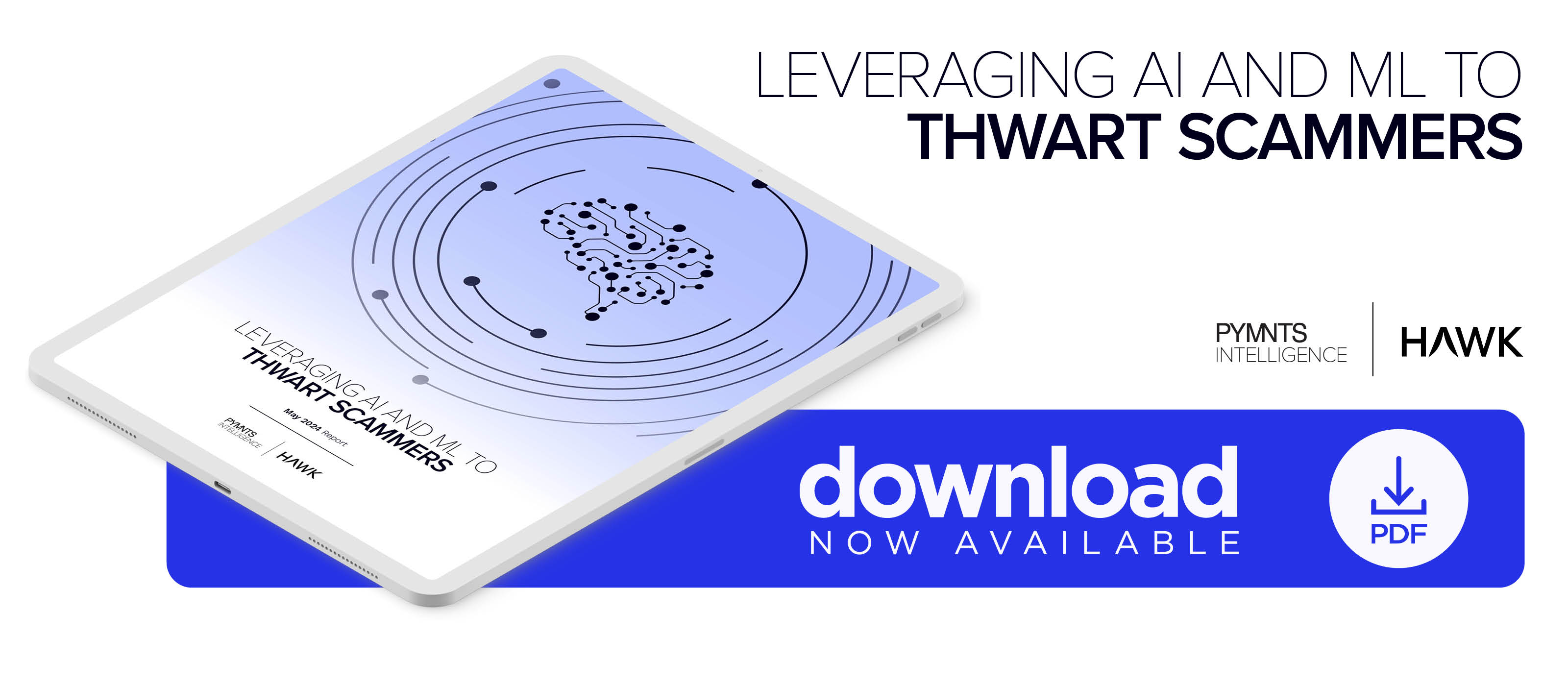New Report: Authorized Fraud Scams Damaging to Bank-Customer Relationships
Despite ongoing efforts to educate consumers on protecting themselves against financial crime, increasing authorized fraud and scam instances are nightmares for banks and their customers. Authorized fraud, which targets customers or bank employees, is particularly troubling.
 PYMNTS Intelligence finds that 43% of the fraudulent transactions that financial institutions (FIs) report are authorized fraud. Product and service or trust/relationship scams are common. With fraud and financial crime an ever-growing reality for FIs of all sizes, the result is often financial loss. Adopting fraud prevention measures such as machine learning (ML) and artificial intelligence (AI) has increased FIs’ confidence in protecting customers, employees and themselves from fraud-related financial losses.
PYMNTS Intelligence finds that 43% of the fraudulent transactions that financial institutions (FIs) report are authorized fraud. Product and service or trust/relationship scams are common. With fraud and financial crime an ever-growing reality for FIs of all sizes, the result is often financial loss. Adopting fraud prevention measures such as machine learning (ML) and artificial intelligence (AI) has increased FIs’ confidence in protecting customers, employees and themselves from fraud-related financial losses.
These are just some of the findings detailed in “Leveraging AI and ML to Thwart Scammers,” a PYMNTS Intelligence and Hawk collaboration. This report explores the impact of authorized fraud scams on FIs and their customers. We surveyed 200 U.S. FIs with more than $1 billion in assets between March 20, 2023, and June 16, 2023. The survey examined how they perceive the fraud risks and the impact of the technology solutions used to mitigate losses.
Other key findings from the report include:
Scams represent one-third of authorized fraud and are the most harmful to customer finances.
The second-most common type of authorized fraud is scams, representing 34% of incidents. Scammers manipulate or deceive the authorized party to get them to make a payment. Scams are particularly concerning because they negatively impact customer satisfaction and retention. Moreover, scams represent 14% of all fraudulent transactions at FIs with assets of $5 billion or more, making them a common occurrence.
Scammers disguised as trusted service providers or promising monetary gain are the most likely to trick authorized users.
Scammers increasingly target vulnerable customers by making appealing offers or acting as trusted service providers. Data shows that more than 63% of FIs reported incidents of tech support scams, making fictitious tech issues a widespread risk for FIs. In addition, 65% of FIs reported incidents of utility company scams, and 64% reported incidents of IRS imposter scams.
FIs that employ ML or AI fraud prevention models reported lower incidences of many of the most prevalent authorized fraud scams.
While educating customers on scams is an important prevention strategy, FIs increasingly look to solutions such as ML or AI. The results look promising. For instance, tech support impersonation scams are among the most frequently reported. Yet FIs using AI or ML anti-fraud solutions were 17% less likely than those that do not use these technologies to report tech support scams as their biggest scam threat. FIs employing AI or ML tools were 18% less likely to report IRS imposter scams as a top concern.
Leveraging advanced technologies enables FIs to reduce financial losses while providing customers with the trusted financial services they expect. Download the report to learn more about how FIs’ use advanced technologies to protect their customers from increasing authorized fraud.
